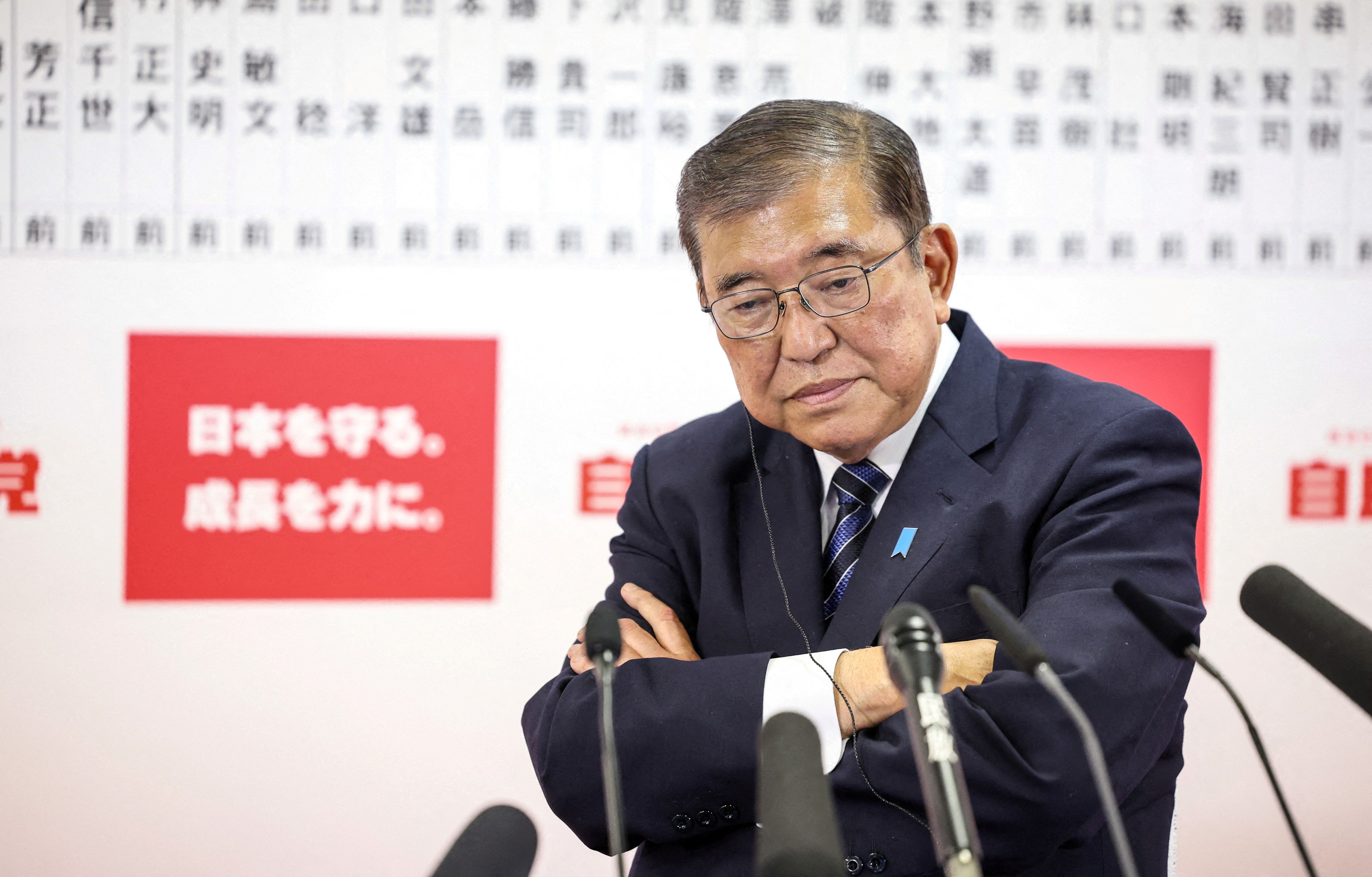Sunday’s general election in Japan left a mess.
The Liberal Democratic Party (LDP), which has ruled Japan for much of the past 70 years, lost its majority in the House of Representatives, which selects the prime minister. The leading opposition party, the Constitutional Democratic Party (CDP), picked up a lot of seats, but far from a majority. So conservatives in the LDP and liberals in the CDP will spend the next few days, or maybe weeks, trying to cobble together a governing coalition.
When the dust finally settles, don’t expect to see any major change in Japan’s policy of dutifully following the United States to counter China’s rise. Komeito, the LDP’s once pacifist junior partner, has all but lost its pivotal role in Japanese politics. The new kingmakers in Tokyo tend to be anti-Beijing hawks.
How did we get here?
The LDP has been dogged by two major scandals. One had to do with the party’s significant ties to Rev. Sun Myung Moon’s Unification Church, which became the target of media scrutiny after the assassination of Japan’s longest serving executive by a man who blamed the church for his family’s financial woes. “Moonies,” it turned out, had supplied campaign contributions and election workers for conservative pols. The other had to do with the failure of powerful party factions to report about $4 million in donations stored in illegal slush funds.
The twin scandals led to the resignation of Fumio Kishida as LDP leader and prime minister. Eager to save their political lives, LDP pols chose a contrarian, Shigeru Ishiba, as new party leader and prime minister. He called the snap election, hoping that his clean reputation and relative popularity would save the day. Was he ever wrong!
The right-wing LDP, which previously dominated the lower (but more important) house in parliament, lost 56 seats in Sunday’s election — falling from 247 to 191 seats in the 465-member body. Its partner, Komeito, also suffered a loss of eight seats (from 32 to 24). Together, they had enjoyed a supermajority that allowed them to pass legislation without much trouble. But no more.
The CDP, Japan’s center-left party, gained 50 seats (from 98 to 148). An earlier version of CDP, the Democratic Party of Japan, ousted the LDP in 2009. But it had a rough ride in power, struggling first with U.S. complaints over its more autonomous foreign policy and then with the fallout from an earthquake and tsunami that led to a nuclear meltdown in northeastern Japan, a beleaguered economy, and lingering questions about the party’s leadership ability.
Even after faring so well in Sunday’s election, the CDP may lack the magnetism to pull together a ruling coalition of 233 or more members. Yoshihiko Noda, the CDP leader, is negotiating with smaller parties. Ishiba, the LDP leader, also is bargaining — but in the short-run may have to rely on ad-hoc (policy by policy) compacts with other parties.
Both are focused on Ishin (Japan Innovation Party), based in Osaka, which has become the third largest party with 38 seats, and the centrist Democratic Party for the People (DPP), which soared on Sunday from virtually nowhere to fourth largest (with 28 seats). The leaders of these two parties will probably decide the shape of Japan’s next government.
Ishin is led by Nobuyuki Baba, who admires Donald Trump and embraces a populism that is left of the LDP on many economic and social issues (universal basic income, free education at all levels, same sex marriage, etc.) but aligned with the LDP on foreign policy. The party advocates higher defense spending to counter China and North Korea, as well as a possible revision of the country’s anti-war Constitution.
In a poll before the election, Ishin candidates were the most likely (90 percent) to agree that “Japan should possess counter-attack capabilities.” Baba also believes the country should have greater control over U.S. nuclear weapons in Japan.
DPP is led by Yuichiro Tamaki, a former finance ministry official who has tried to strike a balance between the LDP and CDP. The party campaigned on very concrete, mostly economic issues in this election, calling for air conditioners in school gyms and a cut in the consumption tax. On security issues, it quietly followed a hawkish line, favoring a stronger defense and a revision of the pacifist constitution.
What this means is that Japan today is still dominated by relatively conservative politicians who, especially on foreign policy, want to maintain the status quo.
One of the most overlooked results of Sunday’s election was the continued decline of Komeito, which has helped the LDP govern since 2012. It didn’t just lose a quarter of its seats; it also lost its leader, Keiichi Ishii, who failed to win re-election in a Tokyo suburb.
Komeito, the political arm of Soka Gakkai, a controversial Buddhist sect, is the closest thing to a religious party in Japan. Although it eventually modified its ideology, it initially was ardently pacifist, favoring the anti-war constitution and opposing the dispatch of Japanese “self-defense forces” (or SDF, the euphemism for the nation’s military). As the LDP’s junior partner, Komeito provided a kind of brake on some of the leading party’s more hawkish positions.
In every election cycle, the party produced thousands of loyal foot soldiers who helped get out the vote for both Komeito and LDP candidates. Last year however, Daisaku Ikeda, the party’s founder and Soka Gakkai’s longtime leader, died — sapping some of the movement’s enthusiasm. One wonders if Komeito will ever recover its political vitality, or if it will continue to check the government’s turn toward a more assertive if not outright aggressive foreign policy.
We should know a lot more soon.
- Japan's new PM may have a bone to pick with the US ›
- Why Japan should take a stand in NATO tensions with Russia ›
- China hawks dominate pool for Japan’s next prime minister ›
















